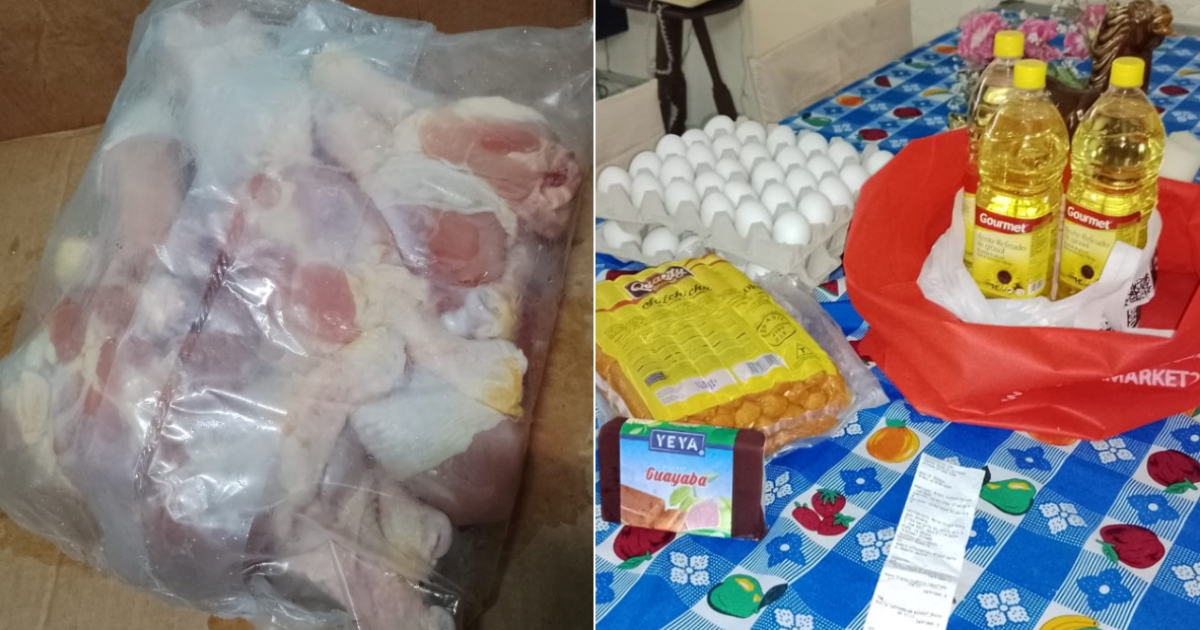Amid the widespread crisis in Cuba, characterized by skyrocketing inflation, food and basic goods shortages, monetary instability, and low wages, emigrants face a difficult decision on how to best support their families on the island: should they send money or food? According to news agency AFP, many Cubans report that sending food through agencies and online stores provides much-needed relief to make ends meet. Conversely, sending dollars via Western Union is less appealing because the company exchanges the currency at the official rate of 120 pesos per dollar, while the street value of the U.S. dollar exceeds 300 pesos.
As Cuba ended 2023 with an inflation rate of 30% and climbing, the average salary on the island is 4,800 pesos, equivalent to about 40 dollars at the official exchange rate and roughly 13 USD on the black market. With these wages, Cubans must contend with the high costs of goods, such as a carton of 30 eggs for 3,300 pesos (27.50 dollars at the official rate), a pound of pork for 600 pesos, and a kilogram of chicken for over 2,000 pesos.
A Cuban living in Spain explained to CiberCuba that he used to send only money (100 euros per month) to his relatives, which was sufficient to buy food. "But in recent years, at my family's request because they struggle to find food even with money, I've had to send both food (basic items like chicken, eggs, oil, sausages, etc.) and some cash. In summary, I now spend about 30-40 euros more so they can eat," he detailed.
Similarly, Cuban activist Saily González reflected in an Instagram video that through virtual markets and other controlled mechanisms, in a chaotic context of inflation and shortages, the regime forces Cubans abroad, exiles, and dissidents to pay a ransom for their relatives held hostage on the island in the form of top-ups, remittances, or packages sent through government agencies. These funds ultimately finance the repression within the country.
In recent years, the government has established channels to collect foreign currency from emigrants. Several online stores and even ticket purchases can now be made from abroad. Over the past three years, more than half a million Cubans have fled the crisis on the island, and their dollars currently sustain the regime's machinery.
Challenges and Solutions for Supporting Families in Cuba
Given the complex situation in Cuba, many emigrants face tough choices in determining the best way to support their families. Here are some frequently asked questions on this topic.
Why is sending money less appealing than sending food for Cuban families?
Sending money is less appealing because the official exchange rate in Cuba is significantly lower than the street value. This means families receive less purchasing power when converting dollars to pesos through official channels like Western Union.
What are the main challenges faced by Cuban families when receiving remittances or food?
Cuban families face challenges such as high inflation, scarcity of goods, and the need to navigate government-controlled channels that often take a significant cut of the remittances or food packages sent from abroad.
How does the Cuban government benefit from remittances and food packages sent from abroad?
The Cuban government benefits by controlling the channels through which remittances and food packages are sent, thereby capturing foreign currency and using it to fund its operations, including repression within the country.
